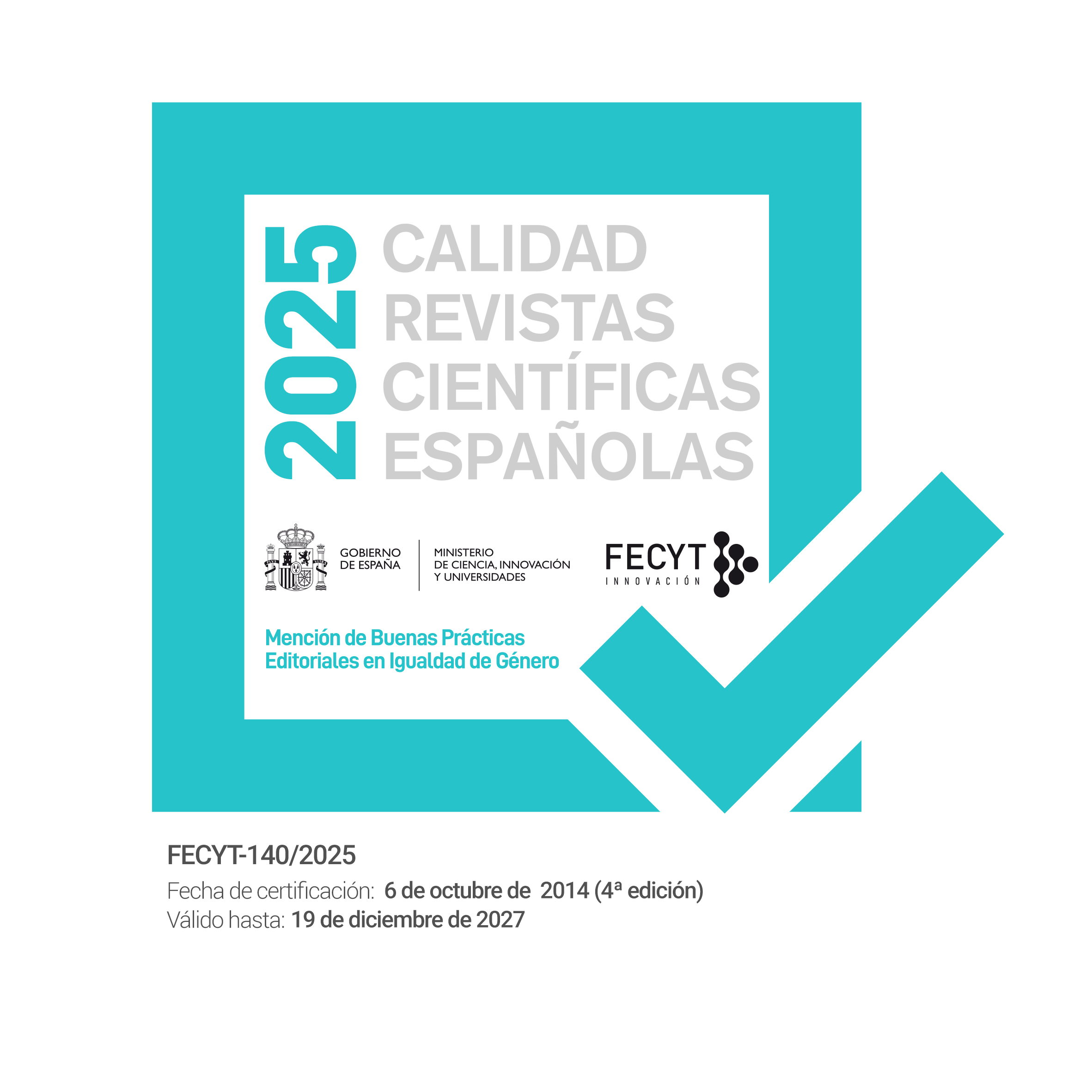Vocation and burnout in mexican teachers
DOI:
https://doi.org/10.5944/educxx1.32954Keywords:
teacher attitude, burnout, education, teachers, teachingAbstract
The increasing rate of demands and urgent adaptations in the health, social and professional fields demand from individuals a response that, for some, may exceed their limits; the teaching profession is not the exception, since it is an activity of constant challenges and epistemological and cultural ruptures. The phenomenon of burnout or attrition at work is increasingly evident and has been studied in association with certain personal and contextual characteristics, however, there are not enough studies that link it with the vocation to teaching that can respond as a source of support to prevent it. The purpose of this work was to analyse the relationship between vocation and burnout syndrome in Mexican teachers, in addition to analysing the validity of the vocation to teaching scale. For this, a quantitative, descriptive, and cross-sectional study was carried out on 824 teachers of different educational levels. The results revealed a predictive and negative association between vocation and burnout, in addition to finding significant differences according to the different socio-occupational categories; likewise, the analysis of the vocation to teaching scale showed that it is a reliable and valid instrument to analyse their construct. It is concluded that there are critical factors that can trigger job burnout such as contractual uncertainty, the educational level at which teaching is exercised, professional training and experience in teaching; a comprehensive accompaniment to teachers is recommended that allows their professional and human development.
Downloads
References
Benevene, P., Stasio, S. De, Fiorilli, C., Buonomo, I., Ragni, B., José, J., Briegas, M., & Barni, D. (2019). Effect of teachers’ happiness on teachers ’ health. The mediating role of happiness at work. Frontiers in Pshychology, 10(October), 1–10. https://doi.org/10.3389/fpsyg.2019.02449
Bitran, M., Pedrals, N., Vergara, C., Rigotti, A., & Puschel, K. (2019). Burnout en la formación de profesionales de la salud en Chile: Factores de protección y riesgo, y propuestas de abordaje desde la perspectiva de los educadores. Revista Médica de Chile 147, 510–517. http://dx.doi.org/10.4067/S0034-98872019000400510
Carlotto, M. S., & Gonçalves Câmara, S. (2017). Riscos psicossociais associados à síndrome de burnout em professores universitários. Avances en Psicología Latinoamericana, 35(3), 447–457. https://doi.org/10.12804/revistas.urosario.edu.co/apl/a.4036
Christian-Brandt, A. S., Santacrose, D. E., & Barnett, M. L. (2020). In the traumainformed care trenches: Teacher compassion satisfaction, secondary traumatic stress, burnout, and intent to leave education within underserved elementary schools. Child Abuse and Neglect, 110(December 2019), 104437. https://doi.org/10.1016/j.chiabu.2020.104437
Cohen, J. (1992). A power primer. Psychological Bulletin, 112, 155-159. https://doi.org/10.1037/0033-2909.112.1.155
Del Pino, M., & Fernández, M. (2019). La importancia de la vocación en la elección de la carrera de Magisterio. Análisis de las expectativas vocacionales de los aspirantes a maestro en el Centro Adscrito de Magisterio Mª Inmaculada de Antequera. Revista de Estudios Regionales, (114), 119-146. https://bit.ly/3aRpGcr
Diario Oficial de la Federación (Ed.) (2018). Norma Oficial Mexicana NOM-035-STPS-2018, Factores de riesgo psicosocial en el trabajo-Identificación, análisis y prevención. https://bit.ly/3fzD6v6
Dik, B. J., Eldridge, B. M., Steger, M. F., & Duffy, R. D. (2012). Development and validation of the Calling and Vocation Questionnaire (CVQ) and Brief Calling Scale (BCS). Journal of Career Assessment, 20(3), 242–263. https://doi.org/10.1177/1069072711434410
Flores, D.I. (2017). El síndrome de burnout como riesgo laboral de los docentes. Revista Caribeña de Ciencias Sociales, (noviembre 2017), 1–6. https://bit.ly/3d9lWGn
Franco-Álvarez, E., González-Peño, A., & Coterón-López, J. (2020). Compromiso y motivación en los alumnos de educación física, ¿es importante el burnout del profesor? Revista de Psicología del Deporte, 29(2), 28–35
Fuentes, T. (2001). La vocación docente: una experiencia vital. Ars Abrevis, (7), 285-303. https://bit.ly/3tKuSrh
Gallardo-López, J. A., López-Noguero, F., & Gallardo-Vázquez, P. (2019). Análisis del síndrome de burnout en docentes de educación infantil, primaria y secundaria para su prevención y tratamiento. Revista Electrónica Educare, 23(2), 1–20. https://doi:10.15359/ree.23-2.17
Hair, J.F., Black, W.C., Babin, B.J., & Anderson, R.E. (2014). Multivariate data analysis. Pearson Education Limited.
Hamidi, H., & Khatib, M. (2016). The Interplay among Emotional Intelligence, Classroom Management, and Language Proficiency of Iranian EFL Teachers. Broad Research in Artificial Intelligence and Neuroscience, 7(2), 49-58. https://bit.ly/3tS68h4
Herman, K. C., Hickmon-Rosa, J., & Reinke, W. M. (2018). Empirically derived profiles of teacher stress, burnout, self-efficacy, and coping and associated student outcomes. Journal of Positive Behavior Interventions, 20(2), 90–100. https://doi.org/10.1177/1098300717732066
Hernández-Sampieri, R., Fernández-Collado, C., & Baptista-Lucio, M. (2010). Metodología de la Investigación. Mc Graw Hill
Huertas-Fernández, J. M., & Romero-Rodríguez, S. (2019). La autonomía emocional en el profesorado de secundaria. Análisis en el marco de un proceso de coaching personal. REOP - Revista Española de Orientación y Psicopedagogía, 30(3), 120. https://doi.org/10.5944/reop.vol.30.num.3.2019.26276
Instituto Mexicano del Seguro Social (s.f.). Estrés laboral. https://bit.ly/3dPihvp
Jiménez, C., & Ríos, D. (2018). Dimensiones laborales del síndrome burnout en docentes investigadores de universidades públicas. Face Revista de la Facultad de Ciencias Económicas y Empresariales, 18(2), 97-108. http://dx.doi.org/10.24054/01204211.v2.n2.2018.3431
Jiménez-López, R. A., Pérez de Albéniz Iturriaga, A., Lucas-Molina, B., & Fonseca-Pedrero, E. (2019). El profesorado de la Universidad de La Rioja: ¿Resistente al burnout? Contextos Educativos. Revista de Educación, 24(24), 163–180. https://doi.org/10.18172/con.3590
Kerlinger, F., & Lee, H. (2002). Investigación del comportamiento. Mc Graw Hill
López, S., Civís, M., & Molina, J. L. (2018). La influencia del capital social en el desarrollo profesional de maestros noveles: una aproximación con métodos mixtos desde el análisis de redes sociales. Profesorado. Revista de Currículum y Formación del Profesorado, 22(2), 111–132. http://doi:10.30827/profesorado.v22i2.7717
Lumley, T., Diehr, P., Emerson, S., & Chen, L. (2002). The importance of the normality assumption in large public health data sets. Annual review of public health, 23, 151–169. https://doi.org/10.1146/annurev.publhealth.23.100901.140546
Maslach, C., & Jackson, S. (1981). Maslach Burnout Inventory. Consulting Psychologists Press.
Mesurado, B., & Laudadío, J. (2019). Experiencia profesional, capital psicológico y engagement. Su relación con el burnout en docentes universitarios. Propósitos y Representaciones, 7(3), 12-40. http://dx.doi.org/10.20511/pyr2019.v7n3.327
Monroy-Castillo, A., & Juárez-García, A. (2019). Factores de riesgo psicosocial laboral en académicos de instituciones de educación superior en Latinoamérica: Una revisión sistemática. Propósitos y Representaciones, 7(3), 248. https://doi.org/10.20511/pyr2019.v7n3.361
Muñoz-Fernández, G. A., Rodríguez-Gutiérrez, P., & Luque-Vílchez, M. (2019). La formación inicial del profesorado de educación secundaria en España: perfil y motivaciones del futuro docente. Educación XX1, 22(1), 71–92. https://doi.org/10.5944/educXX1.20007
Nislin, M., & Pesonen, H. (2018). Associations of self-perceived competence, wellbeing and sense of belonging among pre- and in-service teachers encountering children with diverse needs Associations of self-perceived competence, wellbeing and sense of belonging among pre- and in-servi. European Journal of Special Needs Education, 34(4), 424–440. https://doi.org/10.1080/08856257.2018.1533093
Ranđelović, K., & Stojiljković, S. (2015). Work climate, basic psychological needs and burnout syndrome of primary school teachers and university professors. TEME, 6(3), 823-844. https://bit.ly/3aQ30t7
Real Academia Española (Ed.) (2019). Vocación. En Diccionario de la Real Academia Española. https://bit.ly/2NfkhDV
Romero-Llanos, K. (2019). Empatía y síndrome de desgaste profesional (burnout) en docentes de educación básica regular de Lima Metropolitana. Avances en Psicología, 27(2), 237–254. https://doi.org/10.33539/avpsicol.2019.v27n2.1801
Salgado, J.A., & Leria, F.J. (2018). Síndrome de burnout y calidad de vida profesional percibida según estilos de personalidad en profesores de educación primaria. Revista CES Psicología, 11(1), 69-89. http://dx.doi.org/10.21615/cesp.11.1.6
Sánchez, E. (2009). Mitos y realidades en la carrera docente. Revista de Educación, 348, 465-488. https://bit.ly/3aSF88a
Tašner, V., Mihelič, M. Ž., & Čeplak, M. M. (2017). Gender in the teaching profession: University students’ views of teaching as a career. Center for Educational Policy Studies Journal, 7(2), 47–69. https://bit.ly/3cVlnzw
Torres-Hernández, E.F. (2018). Competencias socioemocionales y creencias de autoeficacia como predictores del burnout en docentes mexicanos. Revista de Estudios y Experiencias en Educación, REXE, 17(35), 15-27. https://doi.org/10.21703/rexe.20181735torres1
Torres-Hernández, E.F. (2020). Habilidades intrapersonales y su relación con el burnout en docentes de educación básica en León, México. Revista de Estudios y Experiencias en Educación, REXE, 19(39), 163-179. https://doi.org/10.21703/rexe.20201939torres9
Torres-Hernández, E. F. (2022). Diseño y validación de una escala de vocación docente para profesores ( CVOC-D ) Design and validation of a teacher vocation scale for teachers. Revista Fuentes, 24(1), 104–115. https://doi.org/https://doi.org/10.12795/revistafuentes.2022.15751
Unda, S., Uribe, F., Jurado, S., García, M., Tovalín, H., & Juárez, A. (2016). Construction of a scale for assessing at work psychosocial risk factors in professors. Revista de Psicología Del Trabajo y de Las Organizaciones, 32(2), 67–74. https://doi.org/10.1016/j.rpto.2016.04.004
Valenzuela, J., Muñoz, C., & Marfull-Jensen, M. (2018). Perfiles motivacionales durante la formación inicial docente. Profesorado. Revista de Currículum y Formación Del Profesorado, 22(1), 325–346. https://bit.ly/3tHL7pa

Downloads
Published
How to Cite
Issue
Section
License
Copyright (c) 2022 Edgar Fabián Torres-Hernández

This work is licensed under a Creative Commons Attribution-NonCommercial 4.0 International License.
Educación XX1 is published under a Creative Commons Attribution-NonCommercial 4.0 (CC BY-NC 4.0)










